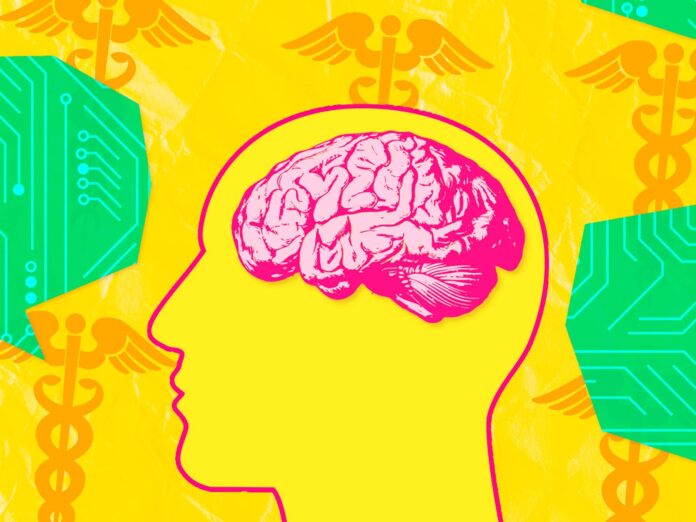AI Chatbots & Mental Healthcare

The pandemic, the recess of economics, and the war in Europe are all factors contributing to feelings of negativity and depression. However, access to quality mental healthcare varies from country to country. In some areas, it might be hard to find a qualified professional, or the supply might be lower than the demand. All these have contributed to the rapid proliferation of mental health provider apps. Other technological advances, such as AI chatbots may play a critical role in mental healthcare in the coming future. Let’s take a look at both the benefits and limitations of this technology.
'You can leverage the benefits that AI chatbots bring to mental healthcare such as anonymity, timely support, and reduced costs.' -Yulia GavrilovaClick To Tweet
Mental Healthcare
In addition to mental health provider applications and AI chatbots, there have been other impressive steps toward mental healthcare:
By the end of 2020, venture investors put an impressive $1.5 billion into mental health-related startups in the USA.
There are more than 10 mental health unicorns (companies with a valuation of $1 billion) in the U.S.
124 mental health startup deals were closed last year, compared to 69 deals in 2016.
These are great steps. However, the questions must be asked: How effective are these applications? Especially, how effective are those that use artificial intelligence?
Benefits of AI Chatbots
AI chatbots are used in many industries where customer service is of the utmost importance. Research shows that some people prefer interaction with chatbots rather than with real humans. Chatbots are able to present information immediately and are available 24/7.
#1: Anonymity
In mental healthcare, these advantages can also be vital. But these same advantages can also be vital in mental healthcare. Moreover, many people avoid accessing psychological health providers out of fear of being judged, especially when sensitive issues are involved. It has been proven that chatbots help to overcome this fear and provide help for those who need it. Chatbots are highly praised for their anonymity. For example, some patients find it easier to open up to the screen rather than to a real person.
#2: Timely Support
Another use case is for people working unconventional hours. People who work night shifts often struggle to find therapists that can accommodate them. Timely support is important for patients with depression, anxiety, and panic attacks.
#3: Reduced Cost
Finally, access to mental healthcare is still considered a luxury by many. For example, in the U.S., one-hour consultations with a professional can cost between $65 and $250. Considering that effective mental health treatment is usually one to three hours per week and necessary for at least a couple of months, it’s easy to understand that the process can be inaccessible for many people. Chatbots can reduce the price of consultation by cutting expenses on traveling costs and telephone charges.
Limitations of Chatbots
Despite the benefits, there are also some limitations to using chatbots. The biggest drawback lies in the technological limitations of AI systems. Even today, chatbots often struggle to understand the nuances of human language.
#1: Reading Emotions
For therapy, correctly reading not only what’s being said but also the underlying feelings and emotions is vital for successfully obtaining desired results. Most AI systems simply cannot cope with both of these tasks at the same level as humans do. Emotions can be perceived with image or voice recognition since they are highly dependent on the context. But relying just on textual information is hard for a chatbot to orient itself.
Therefore, we cannot be sure of a chatbot’s ability to provide clear and suitable responses to a patient’s requests, nor be able to communicate and reach the core of the problem, which is unacceptable when life-threatening situations are being reported.
#2: Privacy
Another major concern connected to the use of chatbots in healthcare is privacy. Developers have to take effective measures to ensure that data sharing will not expose users to any privacy risks.
How Can Providers Improve Chatbots?
AI in mental healthcare can change the lives of millions of people. Here are some actionable insights into what can be done to make sure the users’ needs are satisfied:
Improve Natural Language Process (NLP) processes.
Self-supervised learning in AI can help improve your chatbot’s ability to understand the patient. It combines the benefits of both supervised and unsupervised learning, allowing the program to learn what one part of the input means using another part of the input. This can be perfectly applied to NLP.
Make it a golden rule to collect conversation success metrics and monitor them regularly. By collecting transcripts of failed conversations, you can keep track of the drawbacks of your system and constantly improve it.
You can also create post-conversation polls where users can evaluate the conversation.
Keep humans in the loop.
Since you know that chatbots don’t work perfectly all the time, make sure that a user who is experiencing communication problems has the ability to connect to a human professional in case of need.
Leveraging the Benefits
By implementing state-of-the-art AI methods, using effective monitoring metrics and analysis, and keeping humans in the loop when necessary, you can leverage the benefits that AI chatbots bring to mental healthcare such as anonymity, timely support, and reduced costs for the users.
Tweet
Share
Share
Artificial Intelligence
Health and Wellness
Healthcare
Machine Learning
Artificial Intelligence
Health and Wellness
Healthcare
Machine Learning
